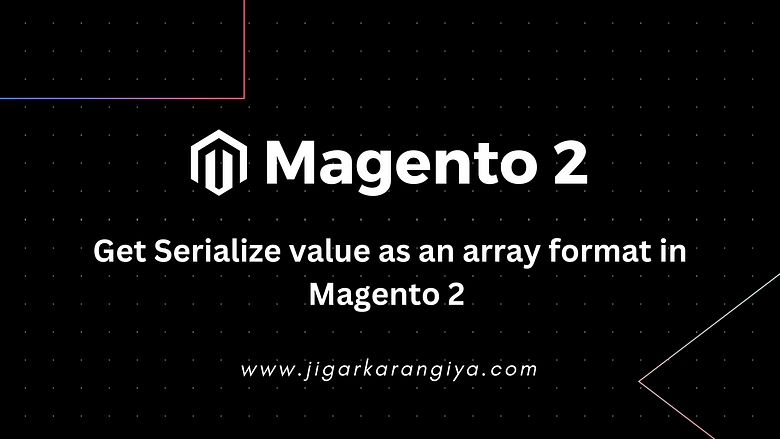In Magento 2, you may need to serialize a value into an array format for various reasons, such as storing the value in a database or passing it as a parameter in a method call. Fortunately, Magento 2 provides several standard ways to serialize data.
Method 1: Using Magento’s SerializerInterface
Magento’s SerializerInterface provides a simple way to serialize and unserialize data using PHP’s native serialize() and unserialize() functions.
Here’s an example code snippet:
|
1 2 3 4 5 6 7 8 9 10 11 12 13 14 15 16 17 18 19 20 21 |
use Magento\Framework\Serialize\SerializerInterface; class YourClass { private $serializer; public function __construct(SerializerInterface $serializer) { $this->serializer = $serializer; } public function serializeValue($value) { return $this->serializer->serialize($value); } public function unserializeValue($serializedValue) { return $this->serializer->unserialize($serializedValue); } } |
In the example above, we inject the SerializerInterface into the class constructor, and then use it to serialize and unserialize data in the serializeValue() and unserializeValue() methods, respectively.
Method 2: Using Magento’s JsonHelper class
Magento’s JsonHelper class provides an alternative way to serialize and unserialize data using PHP’s json_encode() and json_decode() functions.
Here’s an example code snippet:
|
1 2 3 4 5 6 7 8 9 10 11 12 13 14 15 16 17 18 19 20 21 |
use Magento\Framework\Json\Helper\Data as JsonHelper; class YourClass { private $jsonHelper; public function __construct(JsonHelper $jsonHelper) { $this->jsonHelper = $jsonHelper; } public function serializeValue($value) { return $this->jsonHelper->jsonEncode($value); } public function unserializeValue($serializedValue) { return $this->jsonHelper->jsonDecode($serializedValue, true); } } |
In the example above, we inject the JsonHelper into the class constructor, and then use it to serialize and unserialize data in the serializeValue() and unserializeValue() methods, respectively. Note that we pass true as the second parameter to jsonDecode(), which will return the data as an associative array rather than an object.
Conclusion
In Magento 2, there are several standard ways to serialize and unserialize data into an array format. You can use Magento’s SerializerInterface or JsonHelper class, depending on your preferences and requirements.



